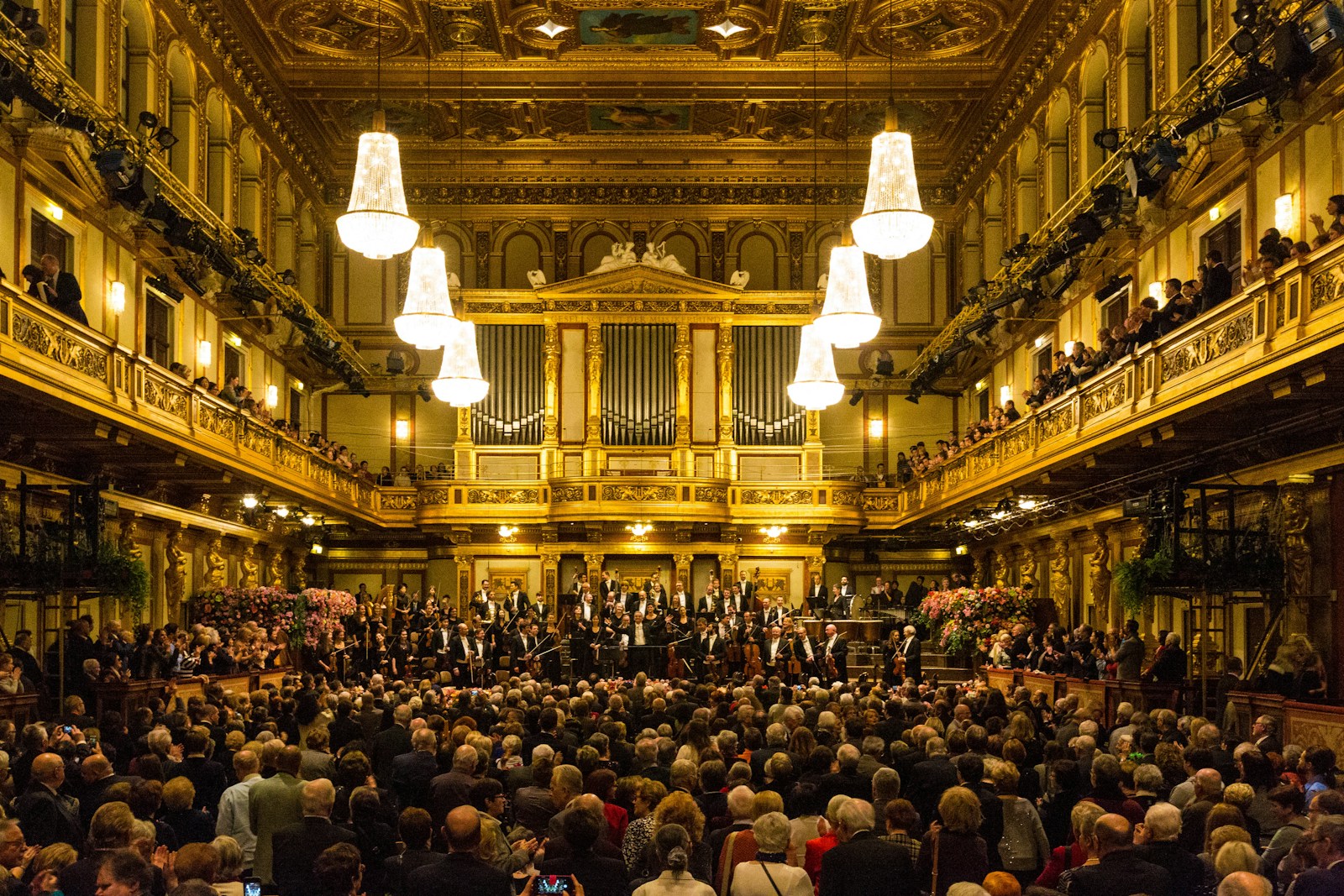
orquesta

orchestra
An orchestra is a large group of musicians playing a variety of musical instruments, especially stringed instruments. The word 'orquesta' in Spanish has the same meaning.
Example sentences using: orquesta
La orquesta está ensayando para el gran concierto.

The orchestra is rehearsing for the big concert.
This sentence is about a musical group, or an orchestra, getting ready for a major performance. 'Está ensayando' means 'is rehearsing' - the Spanish verb tense present progressive used to describe what is happening right now.
Mi hermana toca el violín en una orquesta.

My sister plays the violin in an orchestra.
This sentence states a fact that the speaker's sister is part of an orchestra. The verb 'toca' means 'plays', and 'mi hermana' means 'my sister'.
La orquesta toca música clásica.

This sentence is about the genre of music an orchestra performs. 'Música clásica' is translated as 'classical music.'
None
Quiero aprender a dirigir una orquesta.

I want to learn how to conduct an orchestra.
In this sentence, the speaker is expressing their desire ('quiero' means 'I want') to learn conducting an orchestra.
La orquesta de nuestra escuela ganó un premio.

Our school's orchestra won a prize.
This sentence tells us about an accomplishment of the orchestra from the speaker's school. 'Ganó un premio' translates to 'won a prize'.
Disfruto escuchando a la orquesta en el parque.

I enjoy listening to the orchestra in the park.
Here, the speaker states that they find pleasure ('disfruto' means 'I enjoy') in listening to the orchestra performance taking place in the park.
La orquesta necesita un nuevo director.

The orchestra needs a new conductor.
This sentence introduces a requirement ('necesita' means 'needs') of the orchestra for a new conductor ('un nuevo director').
Me uní a la orquesta de la ciudad.

I joined the city's orchestra.
The sentence conveys the speaker's past action of joining the city's orchestra. 'Me uní' is translated as 'I joined'.
La orquesta interpretará la sinfonía de Beethoven.

The orchestra will perform Beethoven's symphony.
This sentence is informing about a future event where the orchestra is going to perform ('interpretará' is translated as 'will perform') a Beethoven symphony.
¿Has visto alguna vez a la orquesta en vivo?

Have you ever seen the orchestra live?
It's a question about whether the person being addressed saw an orchestra perform live. '¿Has visto alguna vez' translates to 'Have you ever seen', and 'en vivo' refers to a live performance.